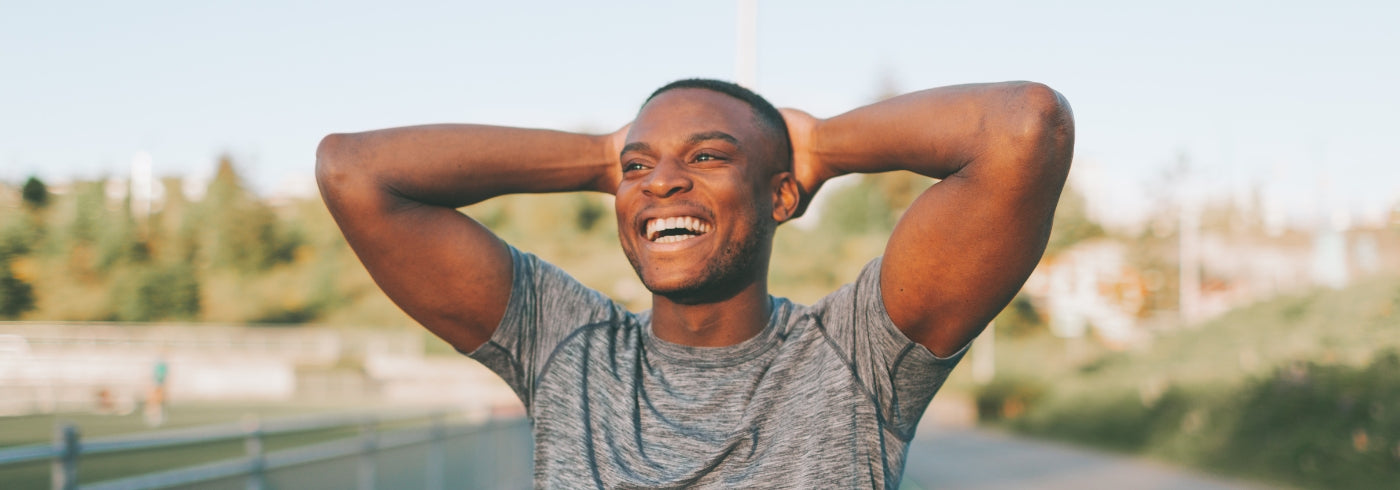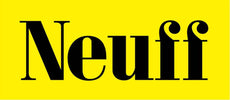
Adjusting & Advancing: Goal Setting for Combined Events Athletes
BY HARRY KENDALL
Hi everyone, back again with another blog for Neuff!
This one will be centring around how to productively reflect on your season, and to help with this, I will be using myself as a case study for reflecting. Following this, I will also discuss how to make adjustments for the following season in terms of training and competing to give you tangible improvements in the future.
Some of my opinions in this article may go against what you see on social media every day and may even prove unpopular. Nevertheless, these are just the things I think are either helpful or overrated in terms of self-reflection.
How should athletes set goals?

The importance of self-reflection in athletics
When reviewing your season, you shouldn't ever be too harsh on yourself. Athletes, by their very nature, put themselves under a lot of scrutiny, with the peaks of their season treated as euphoric, and the troughs as catastrophic. As hard as it is to do so, try to view your season in a balanced way, looking for positives in your results, but also realising there will be areas for improvement which can be actioned without the need for hugely negative thinking. If you wrote out your targets at the start of the season (something which I always do), then go back and compare your results with these. See what you exceeded and which targets you weren’t able to meet.

Coach-athlete communication
After you have reflected on your own season, and reviewed your targets, I believe this is an ideal time to go to your coach or training setup and discuss how best to action changes to meet your targets for the next season. This could be a continuation of your current training programme or alterations to things you believe didn’t benefit you as much in the previous season.
An open dialogue and open-mindedness towards new training ideas can be important, as becoming comfortable in a set-up and losing focus of the fact it may not be the best programme for you can be easily done. In this case, you need to address this with your coach for the next season. Any coach worth his salt will listen to the feedback of their athletes and adapt their programmes for improved performance. It is common for many athletes to be afraid of changes (big ones especially) in their life or their athletics careers. It is vital, however, to recognise when change is needed to improve your performance.

Dealing with setbacks in athletics
If god forbid, you had a disappointing season (like I feel I did), don’t become bogged down in the disappointment, as there are so many things you can do to ensure your next season is better. Recently, I feel there has become a climate of believing you’re self-improving without ever actioning real change, especially on social media. Self-help books can sometimes be beneficial, with many revolving around sound psychology. However, they aren’t going to help you run faster, jump higher or throw further on their own, and it can be a waste of time sitting down and reading 7 of these books a week just to post about it on social media.
Just because some of your favourite Olympians post book after book on Instagram (many of which have ambiguous titles), this doesn’t mean you have to read them all and describe them as transformative to your mindset. At the end of the day, when you’re at the start line of your next multi-events competition, you’re not going to have 763 quotes from different inspirational books floating around in your head. You should be locked in, believing in the tangible training you’ve done and executing it.

Strategies for improving athletic performance
Self-improvement is not shouting 20 affirmations at yourself in the mirror every morning or reading books to just post about them on your Instagram. It’s getting out, putting in the hard graft on the track, in the gym, in the kitchen with your nutrition and then executing everything to the best of your ability. Sometimes, an inspirational quote might give you a little pick me up that you need to get out the door and train, but they are not something to rely on daily, and they certainly won’t increase your points score in a combined events competition. Instead of this, go out, train where you can (even when it's raining), then come home and feel good about yourself for having done it. I guarantee this will make you feel better than writing all your affirmations in a diary.

Changing your training as an athlete
We'll now move on to the specific training adaptations you can make for the coming season. Common sense dictates that if you had a disappointing season in some events, you should focus on these for the winter. However, this does not mean you should be doing each event six times a week for five months, as that won’t leave much time for everything else. Something you have to consider with all your training is your reason for doing this specific exercise or training element. If you have activities in your programme of which you’re unsure of their specificity or usefulness, ask yourself why you are doing it or clarify with your coach how this exercise is necessary. Otherwise, you are wasting energy and risk picking up injuries. This is why specificity in your training is crucial, and everything you do must be for a specific purpose.
If you have underperformed in an event, it may be because your training systems in the previous year weren’t conducive to that event. Seeking out a specialist coach in your area could help improve some of these events, as some specialist combined events coaches may not have the specific technical knowledge you need or provide you with the right cues. For the decathletes in the audience, I think this is especially prudent for the pole vault. It's such a technical and rare discipline, meaning there isn't always a wealth of readily available coaches or vaulting equipment for this event. Travelling further afield to vault can be beneficial, if not just to find some bigger poles or a small amount of technical advice.

Technical skills in athletics training
As you progress into your career, you can add more technical elements to your training. When you start out, especially in the gym, major movements should be relatively straightforward. Movements such as squats, bench presses and other major compounds should form the core of your gym sessions. But, as you continue your training and start working with specific strength and conditioning coaches, you can incorporate more advanced movements such as power cleans and snatches. Attempting these movements without the proper training could result in major injuries and potentially massive setbacks in your career, so please ensure you are ready to execute these moves before you incorporate them into your training.

Effective cues in athletics training
Speaking of cues, these are some of the most critical tools I use in my training to help improve my overall performance. The purpose of cues is to isolate individual technical elements and focus on these for part of or the whole training session. This could be something as simple as keeping your arm high in the javelin or staying away from the bar in the high jump. The human brain isn't optimised for focussing on multiple cues at once, so selecting them individually and dedicating time to this is the most effective way to improve your training. Try to utilise this tool in your winter training, and pick movements you feel you didn’t execute well in the previous season.

Recovering after a sports injury
For the final part of this blog, I’ll focus on how to tackle your winter training if you’re carrying a bit of an injury going into or during the training block. As I’ve mentioned in previous blogs, injuries are part and parcel of athletics, so learning to deal with them is as important as training hard when you’re fit. Rule number one of recuperating from injuries is not to come back too soon. The temptation is always to come back as soon as possible and to get back to training and competition, as that is what you’re dying to do. Be cautious with this at times, as coming back and aggravating an injury again will only hamper your overall training and recovery times.
Enjoy your future competitions!
I hope you enjoyed this blog and have gained some knowledge from it, be that in your mindset to reviewing your season or maybe the different strategies you can implement in the next year or two to enhance your techniques and give you more success in the coming years.
About Harry Kendall

Harry is a decathlete who represented England at the 2022 Commonwealth Games in Birmingham, and is a member of Tonbridge AC.
He has also won bronze at the 2021 British Athletics Championship, and he claimed victory at the 2022 English National Championship after scoring a record of 7843 points!
Instagram: @harrykendall_
Twitter: @harrykendall567


Leave a comment